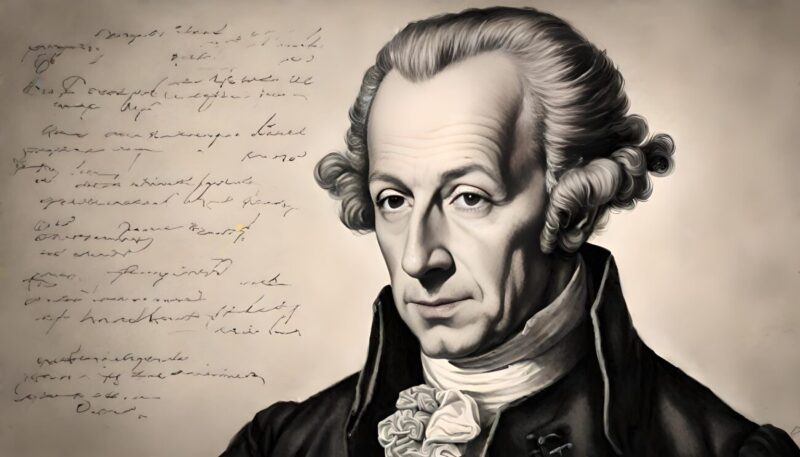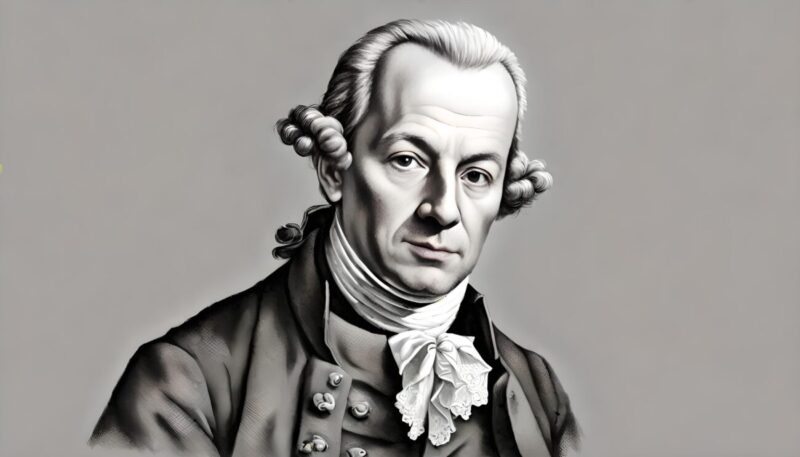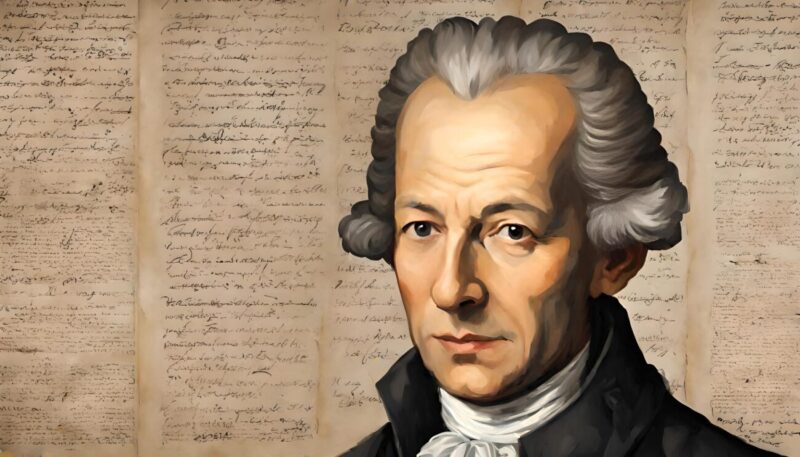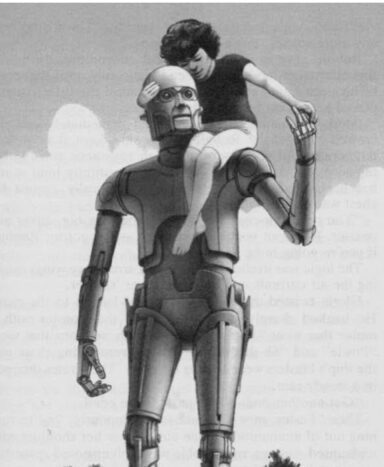I asked the Artificial Intelligence its thoughts on Immanuel Kant’s 300th birthday and how do its principles meet today’s times
Words TOMMASO FALOCI
Immanuel Kant’s birthday, April 22nd, marks the birth of one of the most influential philosophers in Western thought. Kant’s ideas have had a profound impact on various fields, including ethics, metaphysics, epistemology, and aesthetics. His works, such as the “Critique of Pure Reason,” “Groundwork of the Metaphysics of Morals,” and “Critique of Practical Reason,” continue to be studied and debated by scholars and philosophers worldwide. Kant’s emphasis on reason, autonomy, and the categorical imperative has shaped modern philosophical discourse, particularly in ethics and moral philosophy. His notion of the “kingdom of ends” and the idea that individuals should be treated as ends in themselves rather than merely as means remain influential in contemporary discussions of human rights and dignity. Overall, Kant’s birthday serves as an occasion to reflect on his contributions to philosophy and to engage with his ideas, which continue to provoke thought and inspire further inquiry. Immanuel Kant’s 300th anniversary is a significant milestone that provides an opportunity to reflect on his enduring legacy and the profound impact of his ideas on philosophy and beyond. Kant’s philosophical framework, developed during the Enlightenment era, sought to reconcile rationalism with empiricism while revolutionizing key areas of thought. His “Copernican revolution” in philosophy, as he termed it, shifted the focus from merely observing the world to understanding how our mind’s structure and interpret our experiences. This epistemological shift laid the groundwork for his critical philosophy, which aimed to delineate the limits and possibilities of human knowledge.

Central to Kant’s moral philosophy is the notion of autonomy, emphasizing the inherent worth and dignity of rational agents. His categorical imperative, encapsulated in maxims such as “Act only according to that maxim whereby you can at the same time will that it should become a universal law,” continues to shape discussions on ethics and moral reasoning. Kant’s emphasis on moral duty, rational deliberation, and the pursuit of the highest good has left an indelible mark on contemporary ethical discourse.
Furthermore, Kant’s contributions extend beyond the realm of theoretical philosophy. His reflections on aesthetics, teleology, and political philosophy have influenced diverse fields such as art theory, biology, and jurisprudence. Kant’s concept of the “beautiful” as grounded in subjective universal judgments, for instance, has shaped our understanding of art and aesthetic experience. As we commemorate Kant’s 300th anniversary, it is not merely an occasion to celebrate a historical figure but also to reexamine the relevance and resonance of his ideas in our contemporary world. Kant’s commitment to reason, freedom, and the ethical imperative to treat others as ends in themselves remains as pertinent today as it was in his time, inviting us to engage critically with the challenges and complexities of human existence. In this spirit, we honour Kant’s intellectual legacy and continue the ongoing dialogue that he has inspired for centuries.

Kant’s principles continue to resonate with contemporary challenges and issues, offering valuable insights and guidance in navigating the complexities of modern life:
1. Autonomy and Freedom: In an age characterized by individual rights and freedoms, Kant’s emphasis on autonomy remains highly relevant. His insistence on treating individuals as ends in themselves rather than mere means underscores the importance of respecting human dignity and agency. This principle finds application in various domains, including human rights
advocacy, social justice movements, and political theory.
2. Ethical Universalism: Kant’s categorical imperative, which urges individuals to act according to principles that could be universally applied, provides a robust framework for ethical decision-making in diverse cultural contexts. In a globalized world marked by cultural pluralism and moral diversity, Kantian ethics offers a common ground for moral discourse and
deliberation, transcending cultural and religious boundaries.
3. Rational Deliberation: Kantian ethics prioritizes rational deliberation and moral reasoning over mere emotional impulses or societal pressures. In an era dominated by rapid technological advancements, social media, and information overload, Kant’s call for reasoned reflection and critical thinking is more pertinent than ever. Encouraging individuals to scrutinize their motives and principles before acting fosters a culture of ethical responsibility and accountability.
4. Environmental Ethics: Kant’s philosophy, with its emphasis on the inherent value of rational beings and respect for nature, provides a philosophical foundation for environmental ethics. By recognizing the intrinsic worth of all beings and the interconnectedness of ecosystems, Kantian environmentalism advocates for sustainable practices and stewardship of the planet.
5. Digital Ethics: In the digital age, where issues such as privacy, data ethics, and artificial intelligence are paramount, Kant’s principles offer valuable insights. Kant’s emphasis on respecting individuals as autonomous agents underscores the importance of protecting privacy rights and ensuring informed consent in the digital sphere. Moreover, his concern for the unintended consequences of human actions calls for ethical reflection and accountability in the development and use of technology.

Overall, Kant’s principles of autonomy, universalizability, and rationality continue to provide a robust foundation for addressing contemporary moral, social, and political challenges. By engaging with Kant’s philosophy, we can glean valuable lessons and perspectives that enrich our understanding of and response to the complexities of today’s world. As we commemorate Kant’s tricentennial, we are reminded not only of his towering intellect but also of the enduring relevance of his ideas. In an era marked by rapid technological advancements, social upheavals, and ethical dilemmas, Kant’s commitment to reason, freedom, and moral responsibility serves as a guiding light amid the tumult of modernity. May this anniversary prompt us to engage with Kant’s philosophy not as a relic of the past but as a living tradition that continues to challenge, inspire, and illuminate the human quest for truth, goodness, and beauty. Happy 300th birthday, Immanuel Kant, may your legacy endure for centuries to come.


